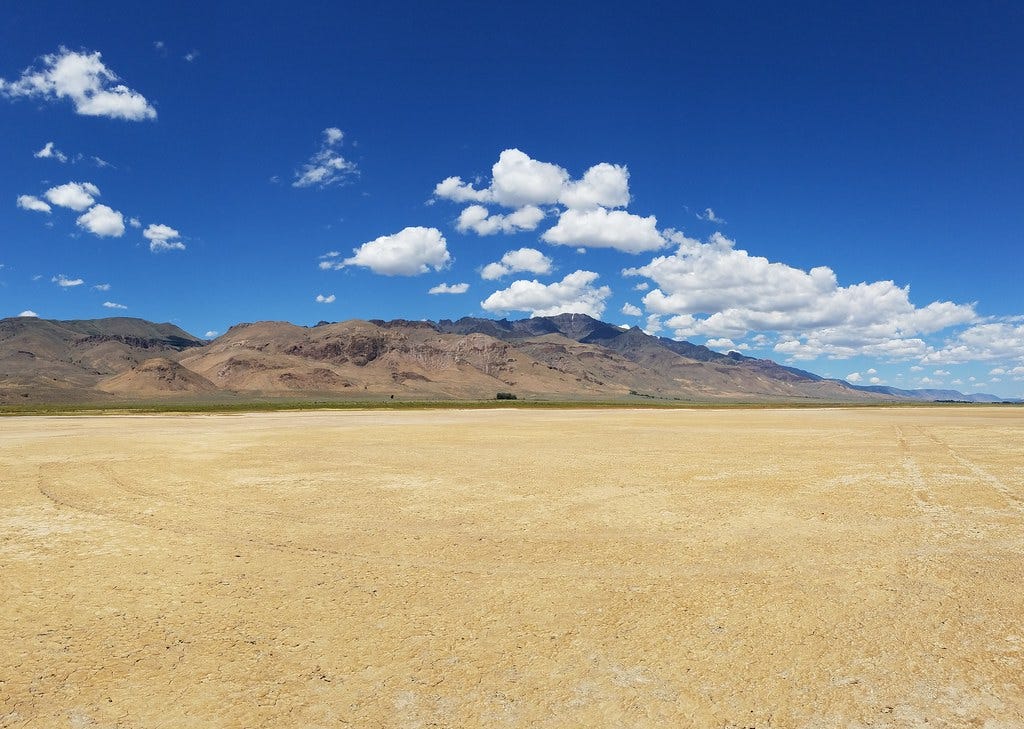Kevin Frazier: Oregon's News Deserts
Seventeen of the state's 36 counties have one or no newspaper. That's a problem.
EDITOR’S NOTE: We’re looking for a co-editor to expand the reach of the blog, improve its content, and diversify its perspectives. Please reach out to me at kevintfrazier@gmail.com if you or someone you know wants to get more involved! Note this is a volunteer role, absent some unexpected donation.
The Oregon deserts you haven’t heard of

"Alvord Desert" by BLM Oregon & Washington is licensed under CC BY 2.0
What’s a news desert?
“[C]ommunities where residents are facing significantly diminished access to the sort of important local news and information that feeds grassroots democracy.”
Q: Are they growing?
A: Yes.
“[T]he economic fallout from the coronavirus has turbo-charged the decline [of local newspapers] – with at least 30 newspapers closed or merged in April and May 2020, dozens of newspapers switching to online-only delivery of news, and thousands of journalists at legacy and digital news operations being furloughed or laid off. All of this raises anew fears of an ‘extinction-level event’ that destroys many of the survivors and newcomers, and leads to the collapse of the country’s local news ecosystem,” according a report entitled The News Landscape in 2020: Transformed and Diminished.
What’s this mean for Oregon?
Oregon has not escaped the shockwaves of the meteor that’s crashed into the local news landscape. Residents in nearly half of the state’s counties have access to a single newspaper, if that. The dearth of local news may sound trivial in an era in which the Internet seems to carry boundless content, but the research suggests otherwise.
The following is a just a sample of the issues caused by news deserts:
Less accountability
Fewer papers means “fewer journalists covering important routine government meetings in small and mid-sized markets or producing major investigative and analytical pieces on state and regional papers that held government
officials accountable.”
Less local information
“[L]ocal newspapers produce more than half of all original local stories that address a critical information need – such as education, the environment and the health and safety of our community.”
Even more entrenched inequality
“Most communities that have lost a newspaper are struggling economically. They are slowly dying, bypassed by the technological revolution – the very communities where residents most need news and information on topics such as education, health and infrastructures. “
A less healthy civic sphere
“[R]esidents of low-income areas tend to be overlooked by advertisers and have less access to print or digital media. Because they are less informed about key issues confronting their communities, they are less likely to vote.”
So, do you live in a desert?
Red = 0 newspapers. Yellow = 1.

UNC Hussman School of Journalism and Media. Read more here.
Oregon has a number of excellent publications. But that’s not enough. Every community deserves and needs journalists that can keep people informed and officials accountable.
Keep the conversation going
What’s your favorite paper in Oregon?
Do you live in a desert? If so, how do you feel the impacts of reduced journalism in your community?
Reach out over Facebook (facebook.com/oregonway) and Twitter (@the_oregon_way)



